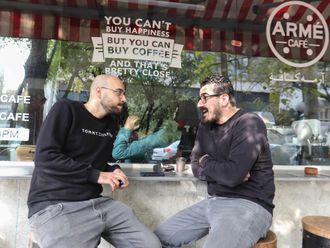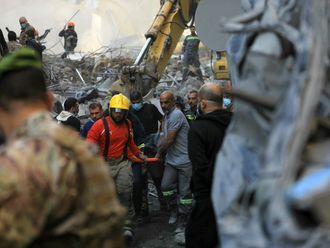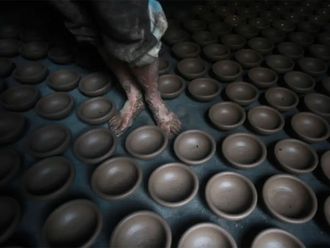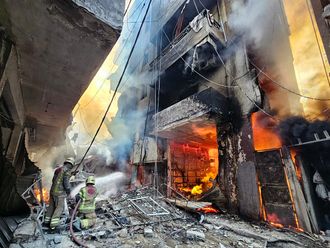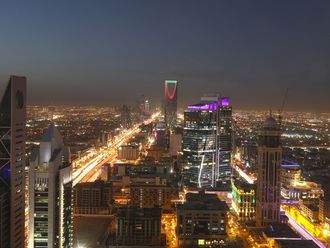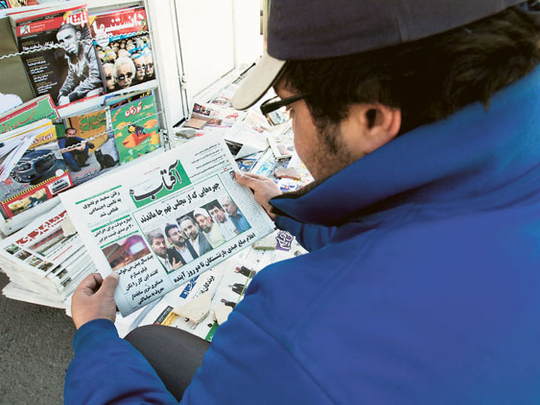
Tehran: Supreme Leader Ayatollah Ali Khamenei has tightened his grip on Iran's faction-ridden politics after loyalists won more than 75 per cent of seats in parliamentary elections at the expense of President Mahmoud Ahmadinejad, a near-complete count showed.
The widespread defeat of Ahmadinejad supporters — including his sister, Parvin Ahmadinejad — is expected to reduce the president to a lame duck after he sowed divisions by challenging the utmost authority of Khamenei in the governing hierarchy.
The outcome of Friday's vote, essentially a contest between conservative hardline factions with reformist leaders under house arrest, will have no big impact on Iranian foreign policy, notably its nuclear stand-off with the West. But it will boost Khamenei's influence in next year's presidential election.
With 90 per cent of ballot boxes counted, Khamenei acolytes were expected to occupy more than three-quarters of the 290 seats in the majlis (parliament), according to a list published by the interior ministry yesterday.
Leading in popularity
In the race for the 30 seats in the capital Tehran, a Reuters tally of preliminary returns showed Khamenei supporters had taken 19 and pro-Ahmadinejad candidates the rest. Leading in popularity was Gulam Ali Haddad Adel, a key ally of Khamenei and father-in-law to the paramount leader's son, Mojtaba.
Pro-Khamenei candidates won in the Shiite holy cities of Qom and Mashhad and led in other major provincial centres including Isfahan and Tabriz, where over 90 per cent of voters had backed Ahmadinejad in the 2009 parliamentary election.
Khamenei loyalists also appear to have swept up around 70 per cent of seats in rural regions — hitherto bastions of Ahmadinejad and his populist nationalism that clerics see as a threat to their political primacy in the Islamic Republic.
Independents and women candidates fared relatively well in many provincial towns, where they campaigned on the immediate concerns — generally economic — of their constituents.
Iran's energy-driven economy is suffering badly from Western sanctions — now expanding to block its lucrative oil exports — imposed over its refusal to halt sensitive nuclear activity and give unfettered access to UN nuclear inspectors.
The interior ministry said final results were expected by today, but the exact make-up of the new parliament will not be known until April, following runoff elections for more than thirty seats.
The results are hard to compare with the outgoing parliament since Khamenei and Ahmadinejad loyalists were united in the 2008 legislative elections, garnering about 70 per cent of seats.
‘Deepening rift'
However, analysts said the combative Ahmadinejad — who is constitutionally barred from running for a third presidential term — would not readily bow to the ballot box rout of his supporters and may fight back.
"Ahmadinejad's camp has not been demolished. We have to wait and see what happens after the new parliament convenes in June," said analyst Hamid Farahvashian.
"The vote showed that there is a deepening rift between the ruling elites. It might emerge in the coming weeks."
Ahmadinejad is likely to be summoned to an unprecedented hearing in the outgoing parliament by Friday to answer questions focusing on his rocky handling of the economy.


